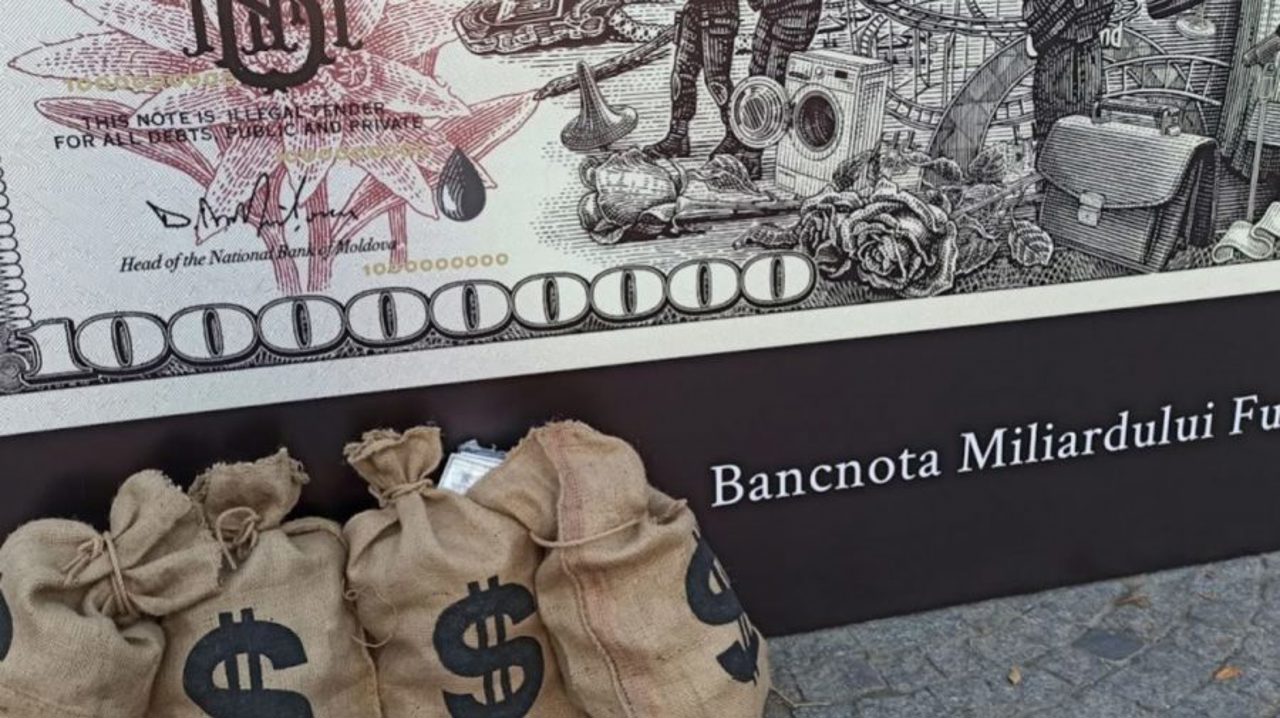Moldova’s billion theft: State bonds, loan recovery, and legal reforms
More than 24.5 billion lei will be paid from the state budget by 2041 to service the state bonds issued to cover the gap caused by the billion-dollar theft.

Around 6.8 billion lei have already been paid since 2017, including more than 1.9 billion lei for the redemption of the principal and more than 4.9 billion lei for interest payments, as stated by Ion Gumene, State Secretary of the Ministry of Finance, in an interview with “Teleradio-Moldova.”
Meanwhile, no money has been recovered from the seized assets of those responsible for defrauding the state.
Between 2011 and 2015, a massive banking fraud scheme occurred in the Republic of Moldova, resulting in the theft of around 1 billion USD (equivalent to 12% of the country's GDP) from three commercial banks, which were later liquidated.
To cover this loss, in October 2016, the Ministry of Finance issued and delivered state bonds worth 13.341 billion lei to the National Bank of Moldova, with maturities ranging from 1 year to 25 years.
The redemption of the state bonds is done according to a schedule agreed upon with the National Bank of Moldova. Interest payments (coupons) are made semi-annually, except for the first year's interest, which was paid on October 4, 2017, as stated by Ion Gumene.
Expenses for servicing the national debt are covered by the state budget, as provided annually in the budget law. The average nominal interest rate on government securities sold on the domestic market in 2024 is 4.96%, which is considered sustainable in terms of cost for the state budget, according to Ion Gumene.
In the period from November 2014 to October 2015, the National Bank of Moldova granted emergency loans, secured with state guarantees, totaling 14.1 billion lei to three commercial banks: Banca de Economii S.A. (about 9.3 billion lei), BC “Banca Socială” S.A. (2.7 billion lei), and B.C. “Unibank” S.A. (2.1 billion lei).
The funds available in the accounts of Banca de Economii S.A., BC “Banca Socială” S.A., and B.C. “Unibank” S.A. at the time their licenses were revoked, as well as the funds subsequently collected by the liquidators, are being used for the liquidation process and to honor the emergency loan repayments.
From the date of the license revocation (October 16, 2015) until September 30, 2024, the liquidators have paid part of the debt related to the emergency loans to the National Bank and the Ministry of Finance, in accordance with the order of claims.
According to the National Bank, the liquidators of the three banks have collected approximately 3 billion lei since the start of the liquidation process until the end of September this year.
The liquidators continue to take measures to sell the assets of the three banks. As of September 30 this year, the three banks have recovered around 2.9 billion lei.
Investigation into the "Billion Theft" Criminal Case
Between 2012 and 2014, three Moldovan banks provided loans totaling 2.9 billion USD to affiliates of the bank owners. These funds were then redirected through accounts in two Latvian banks and were distributed to various jurisdictions, some of which returned to Moldova. About 12% of the country’s GDP was spent to rescue these three banks and prevent the collapse of the country’s banking system.
The investigation into the so-called "billion theft" criminal case has not yet been completed, but in the last three years, several cases involving the main participants in the fraud have been sent to court.
The accused face charges of money laundering on a large scale for the benefit of a criminal organization (charges that will be subject to a statute of limitations in 2029), large-scale fraud for the benefit of a criminal organization, and creating and leading a criminal organization (charges that will be subject to a statute of limitations in 2034).
Among those sent to trial are:
- Vladimir Plahotniuc (Moldovan oligarch, fugitive)
- Ilan Şor (Moldovan oligarch, fugitive)
- Vladimir Andronachi (close associate of Plahotniuc)
- A Member of Parliament (close associate of Şor)
- A former governor, two former vice-governors, and a former department head at the National Bank of Moldova
- Former interim presidents of BC “Banca de Economii” and BC “Banca Socială,” as well as the former president of BC “Unibank” S.A.
- Two accountants from the "Shorholding" group of companies
- And others (a total of 17 individuals)
As of now, in the "billion theft" criminal case, precautionary measures totaling approximately 7.41 billion lei have been applied or transmitted for execution, which represents about 55.5% of the total.
Seizures have been made as a result of both parallel financial investigations conducted by ARBI and independent investigations by the Anti-Corruption Prosecutor's Office.
The value of the seizures applied in the criminal cases sent to court amounts to about 1.42 billion lei.
The value of the seizures applied to assets located outside of Moldova is around 1.59 billion lei.
According to current legislation, this process is carried out only if a final and enforceable court judgment orders the special confiscation or grants civil action.
In other words, the recovery of criminal assets can only take place based on a final and enforceable court decision.
Additionally, current legislation specifies that the enforcement of such decisions falls under the jurisdiction of the judicial executor, not the prosecutor.
In December of this year, lawmakers adopted, in the first reading, a bill aimed at improving the mechanism for confiscating criminal assets. These amendments could help recover seized assets in the “billion theft” case.
The authors propose changes to the Penal Code related to special and extended confiscation. Specifically, they suggest that if it is impossible to confiscate certain assets for a specific reason, an equivalent asset or its value could be seized instead. The bill also allows for the confiscation of proceeds from crime or any benefits obtained from their exploitation.
The legislative proposal further includes a new article in the Penal Code addressing confiscation applied to third parties. Specifically, it would allow the confiscation of assets transferred by the suspect, defendant, accused, or convicted to third parties—if the third parties knew the transfer was made to avoid confiscation or if those assets remained effectively under the control of the suspect, defendant, accused, or convicted.
Translation by Iurie Tataru





